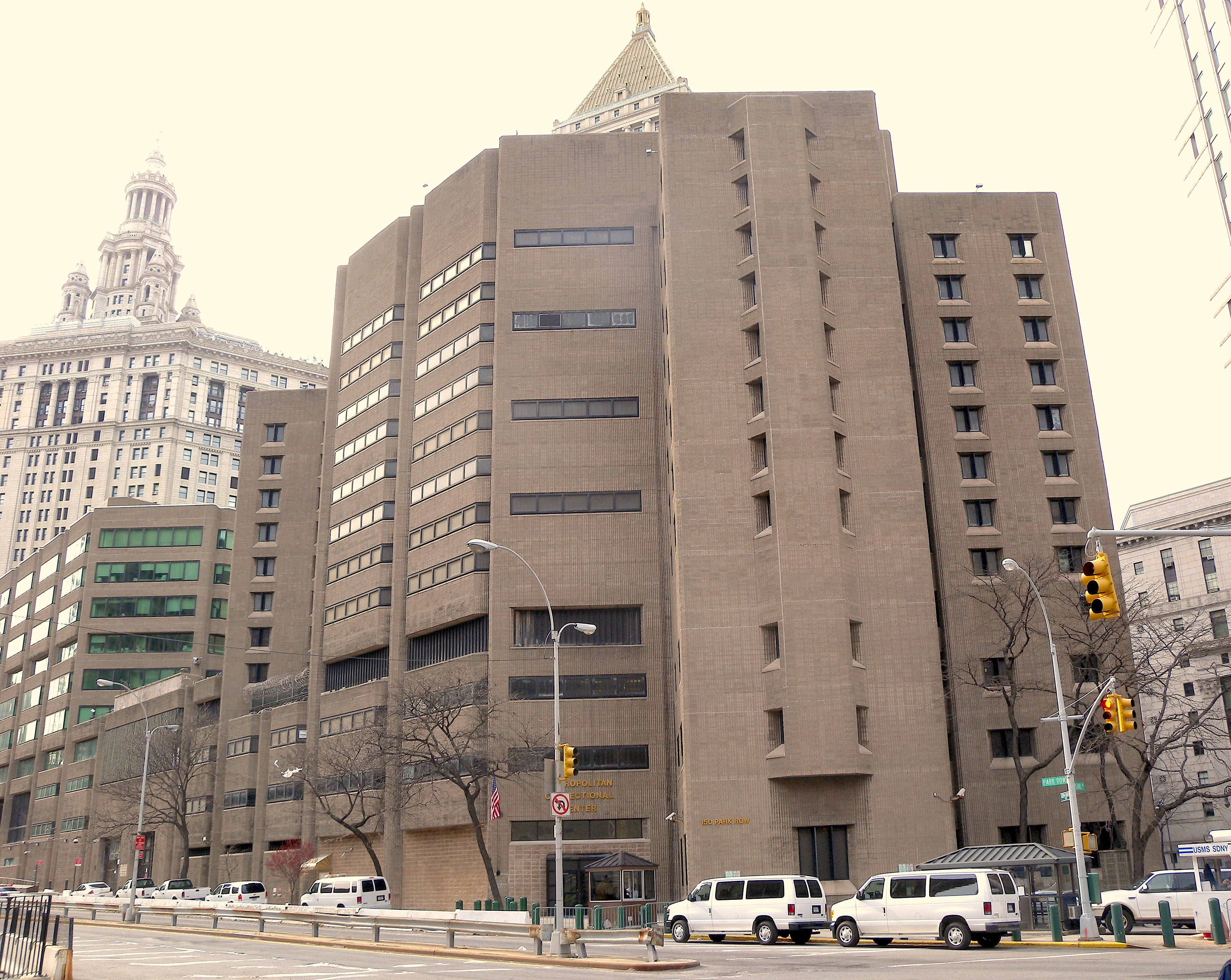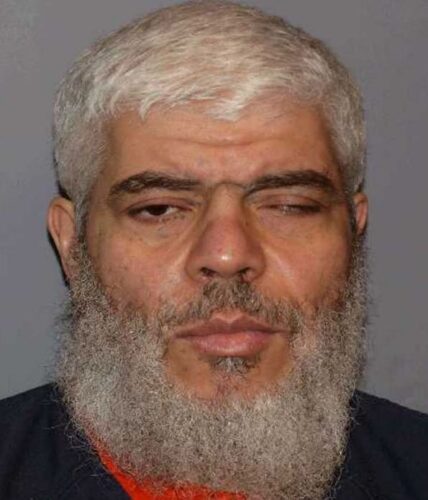Former British diplomat Craig Murray was in the public gallery at Old Bailey for Julian Assange’s hearing and here is his report on Tuesday’s events.

Lady Blind Justice. (Marc Treble, Flickr, CC BY-NC 2.0)
By Craig Murray
CraigMurray.org.uk
 Tuesday was another day on which the testimony focused on the extreme inhumane conditions in which Julian Assange would be kept imprisoned in the USA if extradited.
Tuesday was another day on which the testimony focused on the extreme inhumane conditions in which Julian Assange would be kept imprisoned in the USA if extradited.
The prosecution’s continued tactic of extraordinary aggression towards witnesses who are patently well informed played less well, and there were distinct signs that Judge Vanessa Baraitser was becoming irritated by this approach.
The totality of defence witnesses and the sheer extent of mutual corroboration they provided could not simply be dismissed by the prosecution attempting to characterize all of them as uninformed on a particular detail, still less as all acting in bad faith. To portray one witness as weak may appear justified if they can be shaken, but to attack a succession of patently well-qualified witnesses, on no basis but aggression and unreasoning hostility, becomes quickly unconvincing.
The other point which became glaringly anomalous, in fact quite contrary to natural justice, was the U.S. government’s continued reliance on affidavits from U.S. Assistant Attorney Gordon Kromberg and Board of Prisons psychiatrist Dr. Alison Leukefeld.
The cross-examinations by the U.S. government of the last four defence witnesses have all relied on precisely the same passages from Kromberg and Leukefeld, and every single one of the defence witnesses has said Leukefeld and Kromberg are wrong as to fact.
Yet under U.S./U.K. extradition agreements the U.S. government witnesses may not be called and cross-examined. When the defence witnesses are attacked so strongly in cross-examination on the points of disagreement with Kromberg and Leukefeld, it becomes glaringly wrong that Kromberg and Leukefeld may not be similarly cross-examined by the defence on the same points.
Similarly as to process, the only point of any intellectual purchase which the U.S. government’s lawyers have hit upon is the limited direct experience of the witnesses of the H unit of the ADX Supermax prison.
This casts in a stark light last week’s objection to the defence introducing further witnesses who have precisely that experience, in response to the affidavits of Kromberg and Leukefeld on these specific points, which were submitted on Aug. 20 and Sept. 2 respectively. The prosecution objected to these witnesses as too late, whereas both were submitted within a month of the testimony to which they were responding. The U.S. government and Baraitser having ruled out witnesses on this very specific new point, their then proceeding to attack the existing defence witnesses on their knowledge of precisely the point on which they refused to hear new evidence, leaves a very bad taste indeed.
First Witness, Maureen Baird
The first witness of the day was Maureen Baird, former warden (governor in U.K. terms) of three U.S. prisons including, from 2014–2016, the Metropolitan Correction Center (MCC) New York, which houses a major concentration of Special Administrative Measures (SAMs) prisoners pre-trial. She had also attended national courses and training programs on SAMs and met and discussed with fellow warders and others responsible for them elsewhere, including Florence ADX.

Metropolitan Correction Centre in New York. (Jim Henderson, CC0, Wikimedia Commons)
Led through her evidence by Edward Fitzgerald QC, Baird confirmed that she anticipated Assange would be subject to SAMs pre-trial, based on the national-security argument and on all the documentation submitted by the U.S. attorney, and post-trial. SAMs meant being confined to a cell 23–24 hours a day with no communication at all with other prisoners. In MCC the one hour a day outside your cell was spent simply in a different but identical empty cell known as the “recreation cell.” She had put in an exercise bike; otherwise it was unequipped. Recreation was always completely alone.
 Prisoners were allowed one phone call a month of 30 minutes, or two of 15 minutes, to named and vetted family members. These were monitored by the FBI.
Prisoners were allowed one phone call a month of 30 minutes, or two of 15 minutes, to named and vetted family members. These were monitored by the FBI.
Fitzgerald asked about Kromberg’s assertion that mail was “free-flowing.” Baird said that all mail was screened. This delayed mail typically by two-to-three months, if it got through at all.
Baird said that the SAMs regime was centrally determined and was the same in all locations. It was decided by the attorney general. Neither the prison warden nor the Board of Prisons itself had the power to moderate the SAMs regime. Fitzgerald said the U.S. government had claimed yesterday it could be varied, and some people under SAMs could even have a cellmate. Baird replied “No, that is not my experience at all.”
Fitzgerald quoted Kromberg as stating that a prisoner could appeal to the case manager and unit manager against the conditions of SAMs. Baird replied that those people “could do nothing.” SAMs was “way above their pay grade.”
Kromberg’s description was unrealistic, as was his description of judicial review. All internal procedures would have to be exhausted first, which would take many years and go nowhere. She had never seen any case of SAMs being changed.
Similarly, when Fitzgerald put to her that SAMs were imposed for only one year at a time and subject to annual review, Baird replied that she had never heard of any case of their not being renewed. They appeared simply to be rolled over by the attorney general’s office.
Baird said that in addition to herself applying SAMs at the MCC, she went on national training courses on SAMs and met and discussed experiences with those applying SAMs at other locations, including the Florence, Colorado, ADX.

ADX Florence in Colorado. (Federal Bureau of Prisons, Wikimedia Commons)
SAMs had strong and negative consequences on prisoners’ mental and physical health. These included severe depression, anxiety disorder and weight loss. Baird said she agreed with a previous witness, Joel Sickler, that if convicted Assange could very well face spending the rest of his life imprisoned under SAMs at the Florence ADX. She quoted a former warden of that prison describing it as “not built for humanity.”
Fitzgerald took Baird to Kromberg’s description of a multi-phased program for release from SAMs.
Baird said she recognized none of this in practice. SAMs prisoners could not participate in any group programs or meet other prisoners in any circumstances. What Kromberg was describing was not a program but a very limited list of potential small extra privileges, such as one extra phone call a month. Phase 3 involved mingling with other prisoners and Baird said she had never seen it and doubted it really applied: “I don’t know how that happens.”
Fitzgerald asked Baird about Dr. Leukefeld’s claim that some prisoners enjoy Florence ADX so much they did not want to leave.
Baird said this was a reflection of the extreme anxiety disorders that could affect prisoners. They became scared to leave their highly ordered world.
It was interesting to see how the prosecution would claim that Baird was unqualified. It was very difficult to counter the evidence of a prison warden about the inhumanity of the prison regime. The U.S. government hit on a quite extraordinary attack. They claimed that the prison system was generally pleasant as described by Leukefeld and Kromberg, but that the prisons in which Baird had worked had indeed been bad, but only because Baird was a bad warden.
Here are brief extracts from the US Government’s cross-examination of Baird:
Clair Dobbin Are you independent?
Maureen Baird I work for one attorney but also others.
Dobbin You appear on a legal website as a consultant – Allan Ellis of San Francisco.
Baird I do some consultancy, including with Allan but not exclusively.
Dobbin You only work for defendants?
Baird Yes.
Dobbin It says that the firm handles appeals and post-conviction placing.
Baird Yes, I tend to get involved in post-conviction or placing.
Dobbin Do you have any experience in sentencing?
Baird What kind of sentencing?
Dobbin That is what I am asking.
Baird I have testified on prison conditions pre-sentence.
This was a much briefer effort than usual to damage the credentials of the witness. After questions on Baird’s exact prison experience, Clair Dobbins moved on to:
Dobbin Do you know the criteria for SAMs?
Baird Yes.
Dobbin Why do you say it is likely Assange will get SAMs? Kromberg only says it is possible.
Baird Kromberg talks about it a very great deal. It is very plainly on the table.
Dobbin It is speculative. It can only be decided by the attorney general as reasonably necessary to prevent the disclosure of national security information.
Baird They have made plain they believe Assange to hold further such information.
Dobbin You are not in any position to make any judgement.
Baird It is my opinion he would be judged to meet that criterion, based on their past decisions.
Dobbin How can you say the risk exists he would disclose national security information?
Baird He is charged with espionage. They have said he is a continuing risk.
Dobbin I am suggesting that is highly speculative and you cannot know.
Baird I am judging by what the government have said and the fact they have so much emphasized SAMs. They very definitely fail to say in all this that SAMs will not be applied.
After further discussion on Kromberg’s claims versus Baird’s experience, the U.S. government moved on to the question of the SAMs prisoners under Baird’s care in the MCC.
Dobbin You say they were in solitary confinement. The officers on the unit did not have human contact with the prisoners?
Baird They did not speak to inmates.
Dobbin Why not?
Baird That is not what prison officers do.
Dobbin Why not? You were in charge?
Baird They just open the small viewing slot in the iron door every half hour and look through. Conversation just did not happen.
Dobbin You could encourage that?
Baird I could lead by example. But ordering conversation is not something a prison warden does. I did not have that authority. There are unions. If I instructed the prison officers to socialize with the prisoners, they would reply it is not in their job description.
Dobbin Oh, come on! You could encourage.
Baird On a normal basis, those officers do not talk to inmates.
Dobbin Did you tell your staff to? Wouldn’t the first thing you do be to tell your staff to talk?
Baird No. That’s not how it works.
Dobbin Did you raise your concerns about SAMs with those above you?
Baird No.
Dobbin Did you raise your concerns with judges? (Brief discussion of a specific case ensued.)
Baird No.
Dobbin Did you raise concerns about the conditions of SAM inmates with judges?
Baird No. They were a very small part of the prison population I was dealing with.
Dobbin So you didn’t encourage staff or raise any concerns?
Baird I tried to be fair and compassionate. I talked to the isolation prisoners myself. The fact that other staff did not engage is not uncommon. I do not recall making any complaints or recommendations.
Dobbin So these conditions did not cause you any concerns at the time. It is only now?
Baird It did cause me concerns.
Dobbin What did you do about your concerns at the time?
Baird I did not think I had any influence. It was way above me. SAMs are decided by the attorney general and heads of the intelligence agencies.
Dobbin You did not even try.
This was an audacious effort to distract from Baird’s obviously qualified and first-hand evidence of how dreadful and inhumane the regime is, but ultimately a complaint that Baird did not try to modify the terrible system does not really help the government case. In over two hours of cross-examination, Dobbin again and again tried to discredit Baird’s testimony by contrasting it with the evidence of Kromberg and Leukefeld, but this was entirely counter-productive for Dobbin. It served instead to illustrate how very far Kromberg’s and Leukefeld’s assurances were from the description of what really happens from an experienced prison warden.
Baird demolished Dobbin’s insistence on Kromberg’s description of a functioning three-stage program for removal of SAMs. When it came to Dr. Leukefeld’s account of SAMs prisoners being allowed to take part in psychiatric group therapy sessions, Baird involuntarily laughed. She suggested that from where Dr. Leukefeld sat “in the central office,” Leukefeld possibly genuinely believed this happened.
Afternoon Witness: Lindsay Lewis
The afternoon witness was an attorney, Lindsay Lewis, who representsAbu Hamza, who is held at ADX Florence.

Abu Hamza al-Masri shortly after his extradition to the U.S. in 2012. (Prison Board, Wikimedia Commons)
The videolink to Lewis had extremely poor sound and from the public gallery I was unable to hear much of her testimony.
She said that Hamza, who has both forearms amputated, had been kept in solitary confinement under SAMs in the ADX for almost 10 years.
His conditions were absolutely inappropriate to his condition. He had no prosthesis sufficient to handle self-care and received no nursing care at all. His bed, toilet and sink were all unadapted and unsuitable to his disability. His other medical conditions including severe diabetes, hypertension and depression were not adequately treated.
Lewis said that the conditions of Hamza’s incarceration directly breached undertakings made by the U.S. government to the U.K. magistrates’ court and High Court when they made the extradition request. The U.S. had stated his medical needs would be fully assessed, his medical treatment would be adequate, and he was unlikely to be sent to the ADX. None of these had happened.
Cross Examination
In cross-examination, Dobbin’s major point was to deny that the assurances given to the British authorities by the U.S. government at the time of Hamza’s extradition amounted to undertakings.
She was also at great pains to emphasize Hamza’s convicted terrorist offences, as though these justified the conditions of his incarceration.
But the one thing which struck me most was Lewis’ description of the incident that was used to justify the continued imposition of SAMs on Hamza.
Hamza is allowed to communicate only with two named family members, one of whom is one of his sons. In a letter, Hamza had asked this son to tell his 1-year-old grandchild that he loved him. Hamza was charged with an illegal message to a third party (the grandson). This had resulted in extension of the SAMs regime on Hamza, which still continues. In cross-examination, Dobbin was at pains to suggest this “I love you” may have been a coded terrorist message.
The day concluded with a foretaste of excitement to come, as Judge Baraitser agreed to grant witness anonymity to the two UC Global whistleblowers who are to give evidence on UC Global’s spying on Assange in the Ecuadorian embassy. In making application, Summers gave notice that among the topics to be discussed was the instruction from UC Global’s American clients to consider poisoning or kidnapping Assange. The hidden firearm with filed-off serial numbers discovered in the home of UC Global’s Chief Executive David Morales, and his relationship to the head of security at the Las Vegas Sands complex, were also briefly mooted.
Craig Murray is an author, broadcaster and human rights activist. He was British ambassador to Uzbekistan from August 2002 to October 2004 and rector of the University of Dundee from 2007 to 2010. His coverage is entirely dependent on reader support. Subscriptions to keep this blog going are gratefully received.
This article is from CraigMurray.org.uk.
The views expressed are solely those of the author and may or may not reflect those of Consortium News.
Please Contribute to Consortium News’
25th Anniversary Fall Fund Drive
Donate securely with
Click on ‘Return to PayPal’ here.
Or securely by credit card or check by clicking the red button:



Show Comments